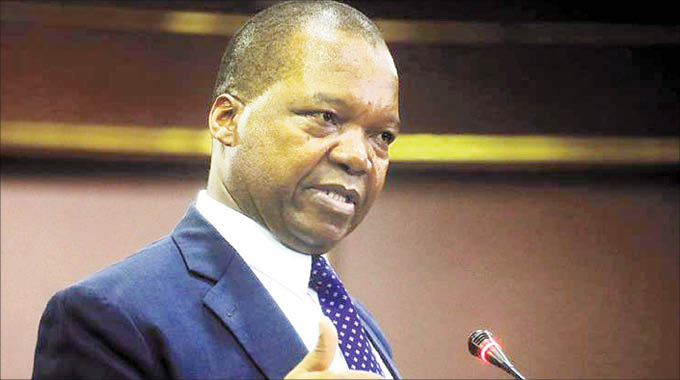RBZ keeps tight leash on money supply

Harare Bureau
RESERVE money, which refers to local banks’ balances sitting with the central bank, declined from $14,96 billion recorded on July 10, 2020, to $14,36 billion as at July 17, 2020, according to latest statistics released by the Reserve Bank of Zimbabwe (RBZ).
The central bank said the decline, was largely due to a decrease of $1,09 billion in RTGS balances, attributable to purchases of foreign currency through the foreign currency auction trading system.
RBZ governor Dr John Mangudya is on record saying, through the auction system, the bank has found a working formula to deal with the problem of exchange rate volatility, which had driven exponential price increases since February.
Since inception of the auction system, economic players have used their RTGS balances to purchase foreign currency and in the process depleting the level of reserve money in the economy.
During the week under review, businesses bought foreign currency worth US$15,98 million from the auction system at a weighted average rate of $72,14 to US$1 resulting in a decrease in RTGS holdings.
The Central Bank Governor has said that the monetary authority will maintain a stranglehold on reserve money targeting policy framework to maintain exchange rate stability, given the undesirable effect of depreciation in fuelling domestic inflation.
He said with the reserve bank selling more foreign currency than it is buying from holders of the hard currency, the auction had the effect of whittling down the amount of local currency in circulation.
“The banks hold current accounts with the Reserve Bank and their balances with the central bank is what we call reserve money. As such, we measure how much reserve money the banks hold and when they buy forex we reduce the balance of their bank accounts in our books,” Dr Mangudya said.
The central bank chief said the more banks have as liquid cash in their current accounts, the more they are likely to lend to their customers, which drives the appetite for forex and at times inadvertently exerts pressure on the exchange rate.
Meanwhile, other deposits at RBZ increased by $396 million over the week, largely reflecting the impact of exchange rate movements at the auction while statutory reserves rose, reflecting deposit build-up in the banking system.
Statutory reserves rose from $888 million to $940 million.
In terms of notes and coins in circulation, the central bank added $37 million to take the local currency in circulation to $1,808 billion, which represent 1,6 percent of deposits. International benchmarks require that an economy must have between 10 and 15 percent cash in circulation against total deposits.
In response to the demand for currency by the transacting public, the Reserve Bank introduced higher denominated banknotes of ZWL$10 and ZWL$20 in the banking system, in a bid to address cash challenges in the economy
The apex bank has however adopted a drip feed strategy in injecting cash into the system as a way of managing inflation.








Comments